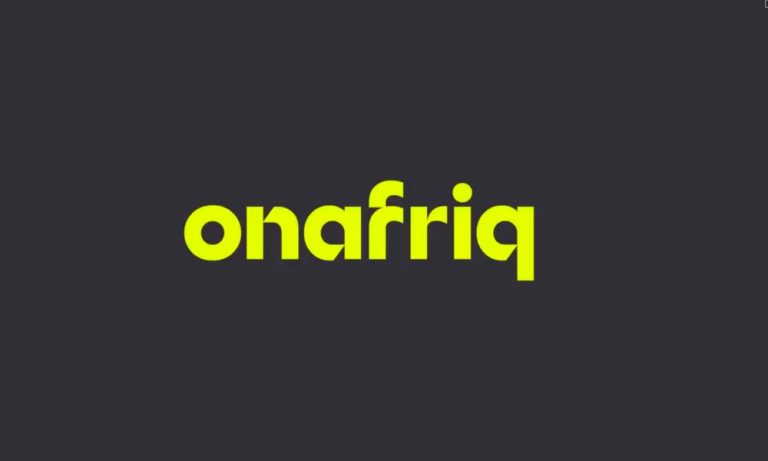
Onafriq, a pan-African payments company that enables interoperable cross-border and domestic digital payments, has partnered with Circle a global financial technology company, to expand access to cross-border payments across Africa with USDC.
By integrating USDC-powered settlement solutions into its network, Onafriq is making intra-African payments faster and more efficient for individuals and organizations.
Today, over 80% of intra-African payments take a costly detour through foreign banks, settling in dollars or euros and draining a jaw-dropping US$5 billion annually in transaction fees. This clunky system stifles Africa’s economic dreams.
Register for Tekedia Mini-MBA edition 17 (June 9 – Sept 6, 2025) today for early bird discounts. Do annual for access to Blucera.com.
Tekedia AI in Business Masterclass opens registrations.
Join Tekedia Capital Syndicate and co-invest in great global startups.
Register to become a better CEO or Director with Tekedia CEO & Director Program.
This partnership marks a significant step in leveraging stablecoins and blockchain infrastructure to build a more affordable and inclusive cross-border payment system that lowers costs, simplifies transactions, and strengthens trust.
Speaking on the partnership, Dare Okoudjou, Onafriq’s founder and CEO, said,
“Our partnership with Circle is an important milestone, reinforcing Onafriq’s commitment to harnessing technology to remove complexity from cross-border payments. By integrating USDC, we aim to simplify financial transactions for institutions and individuals, reduce costs, and strengthen trust. This collaboration underscores our vision to democratize access to payments and drive financial inclusion across the globe. We’re not just envisioning the future of payments we’re actively building it.”
Also speaking, Miriam Kiwan, vice president, of Middle East & Africa at Circle, said,
“The emerging markets that Onafriq serves hold tremendous potential for digital asset innovation, particularly in the adoption of stablecoins for cross-border payments. Our partnership with Onafriq aligns perfectly with Circle’s mission to promote financial inclusion and improve efficiency in areas where traditional banking has often been costly and inaccessible. Together, we aim to transform how money moves across borders, offering secure and transparent digital payment rails that enhance economic empowerment and connectivity.”
Over the past year, there has been a major leap forward in the growth and maturation of the USDC economy. Around the world, there is significant momentum as more people and businesses tap the power of digital dollars on blockchain networks. Developers continue to discover the power of USDC and Circle’s technologies as a platform for building apps that can make global commerce and finance better, faster, and more inclusive. Stablecoins and blockchain are the keys, to unlocking faster, cheaper, and more inclusive transactions that empower individuals and businesses alike.
Onafriq, a pan-African payments company that enables interoperable cross-border and domestic digital payments, has been driving the next step in this revolution. The company boasts a multi-cultural, multi-talented, agile team from over 30 different nations that is driven to create access to a borderless world for millions of Africans and African businesses.
By infusing Onafriq’s sprawling network connecting over 500 wallets and 200 million bank accounts across 40+ African markets with Circle’s USDC-powered settlement solutions, this partnership is turbocharging cross-border payments.
Notably, this collaboration is a giant leap toward a self-reliant, inclusive pan-African financial ecosystem, one where blockchain and stablecoins pave the way for a future that’s faster, fairer, and fiercely connected.
Impact of the Collaboration
• Cost Reduction and Economic Efficiency
The collaboration tackles the US$5 billion in annual transaction fees drained by foreign bank routing. Using USDC for settlements significantly lowers costs for individuals, businesses, and institutions. Cheaper transactions free up capital for investment, consumption, and growth, boosting Africa’s economic integration and competitiveness.
• Faster Transactions
Blockchain-based USDC settlements enable near-instantaneous cross-border payments, unlike the delays of traditional systems. Speed enhances business agility, supports real-time commerce, and improves cash flow for millions of users, from small entrepreneurs to large enterprises.
• Enhanced Financial Inclusion
By simplifying access to cross-border payments, particularly through mobile money platforms, the partnership reaches underserved populations, including those without traditional bank accounts. This democratizes financial services, empowering millions of Africans to participate in the global economy, fostering entrepreneurship, and reducing poverty.
• Strengthened Trust and Transparency
Blockchain’s transparent, secure ledger ensures reliable transactions, while USDC’s stability mitigates currency volatility risks. Increased trust encourages adoption by individuals, businesses, and regulators, paving the way for broader acceptance of digital currencies in Africa.
• Advancement of a Pan-African Financial Ecosystem
The partnership reduces reliance on foreign currencies and banks, promoting a self-reliant financial infrastructure tailored to Africa’s needs. This supports regional integration efforts, such as the African Continental Free Trade Area (AfCFTA), by enabling seamless trade and investment across borders.
Looking Ahead
The Onafriq-Circle collaboration is a pivotal moment in Africa’s financial evolution, signaling a shift toward a modern, inclusive, and efficient payment infrastructure. It challenges the dominance of legacy systems, empowers local economies, and sets a global benchmark for how emerging markets can leverage digital assets responsibly.
By reducing costs, enhancing access, and fostering trust, this partnership not only transforms how money moves within Africa but also strengthens the continent’s role in the global financial landscape, paving the way for a more connected and prosperous future.



